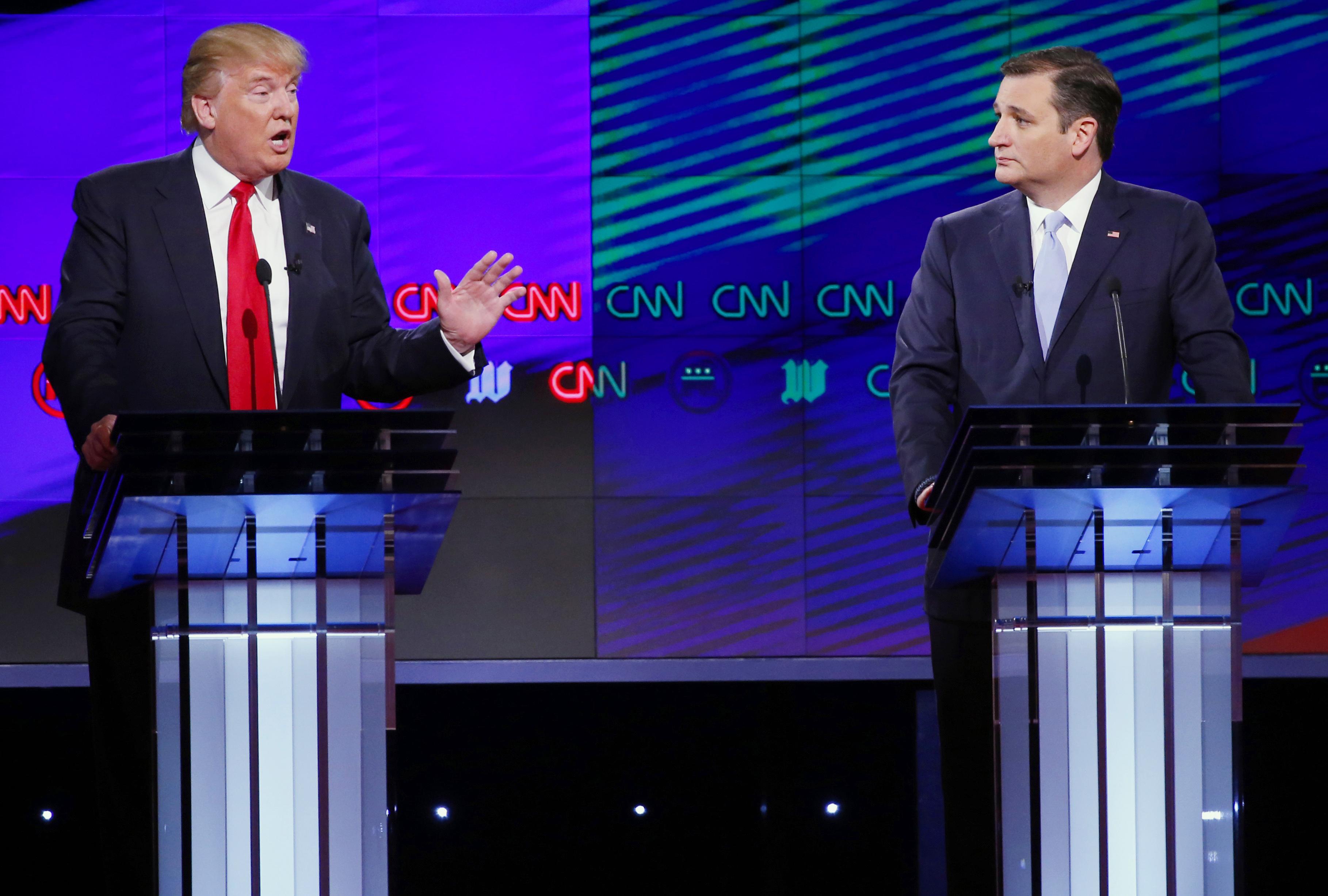
When presidential hopeful and U.S. Sen. Ted Cruz speaks at the Colorado Republican Party's state convention Saturday, it'll be the first time such a candidate has addressed the gathering since Ronald Reagan in 1976.
- Related: Why The Road To Cleveland Is Tricky For Colorado Delegates
- More: Coverage Of The 2016 Presidential Race
Meanwhile, the campaigns of Donald Trump and John Kasich are sending high-level surrogates. All are trying to get their supporters into Colorado's delegation to the Republican National Convention in July.
Why this state convention so important:
It's because Colorado is in a really unusual situation. In most states, which candidate their RNC delegates support is based on the outcome of the primary or a straw poll. But Colorado Republicans haven't polled their members, so the state's 34 elected delegates will essentially be free agents.
That means whichever campaign can get its people elected into our delegate slots will effectively "win" Colorado. And that's important because the Republican race increasingly looks like it will end up in a brokered convention, where every delegate is going to count.
How the delegates are selected:
This all happens at the state and congressional district assemblies. The state convention will select 13 delegates. Each of Colorado's seven congressional districts selects three for another 21 in total. And there are three slots for party leaders too, but they traditionally stay unpledged to a candidate.
When it comes to the state delegates, they'll be chosen by the 4,000 or so people attending the state convention Saturday in Colorado Springs. Each of those people gets a ballot with around 600 names on it, and those 600 people will each get 10 seconds each to make their case from the stage. Then the attendees will vote. The top vote getters get to go to the convention.
With 600 candidates and 10 second speeches, how is anyone supposed to pick?

State Sen. Greg Brophy said the campaigns are looking for two things as they put together their slates: "What you want to do is identify the people who will commit for your candidate and who have the highest name ID among regular participants. So, a former state legislator or a current state legislator, or a longtime activists who's really prolific on Facebook, or something like that."
There are also congressional district meetings to select delegates.Two of those happened last week and their slots all went to Cruz supporters. Is that an indication of how the rest of the delegate elections may go?
For sure. There are several big reasons Cruz is likely to do well at this. One is that his campaign has been organizing here for months to get its supporters through this complicated process. Another reason, according to Sen. Brophy, is that he's just a natural fit with the Colorado party faithful who participate in this process: "The average assembly attendee in Colorado is a conservative. So of all the people left in the race, Cruz is their natural guy."
How the fight for the U.S. Senate nomination in Colorado may also help Cruz:
A big field of Republicans want to challenge Democratic U.S. Sen. Michael Bennet. At the state convention, attendees will vote on which candidates will make it onto the primary ballot. State Sen. Tim Neville is working very hard to win that process and he's politically very similar to Cruz -- so much so that his campaign manager, who also happens to be his son -- is on Cruz's delegate slate. So a lot of political observers think that all of Neville's effort to get his supporters to the state convention is likely to have a spillover effect for Cruz.
There was a lot of talk over the last week about Donald Trump attending the assemblies, but he's not:
Rumors were really swirling. You had reporters saying they'd heard that police officers were being told to cancel their days off to work a Trump event Thursday or Friday.
The fact that he decided to skip the state -- and instead go to California this weekend -- makes you wonder if he's tacitly conceding it. Cruz has been very successful in caucus states so far and Trump has been very vocal in criticizing the caucus system. He says it subverts the popular will to political machinations.
And it's true that one thing you're really reminded of as you follow this process it that political parties really are private membership organizations, free to set their rules and conduct their business however they like.
In the U.S. Senate race there are more than a dozen people running. How important is this weekend for them?
For some of them, it's crucial. It takes support from 30-percent or more of assembly-goers to get on the primary ballot. Four of the top-tier candidates are betting on that route. Aside from that route they include two El Paso County commissioners and long-time Republican activist Jerry Natividad. If any of them fall short of 30-percent, they're out.
But the convention isn't the only route. A candidate can skip the convention and petition onto the ballot and four of the hopefuls chose to take that route. They turned in their petitions last week and are still waiting to hear if they had enough valid signatures to succeed. That group includes former state Rep. John Keyser, who's generally considered the establishment favorite, and former Aurora City Councilman Ryan Frazier.
The Democrats have their convention the following weekend, in Loveland. What's at stake there:
A lot less, certainly, because the delegate allocation will be tied to their caucus night polls and they don't have any statewide primaries. But expect to hear more frustration from the Sanders side over superdelegates.








